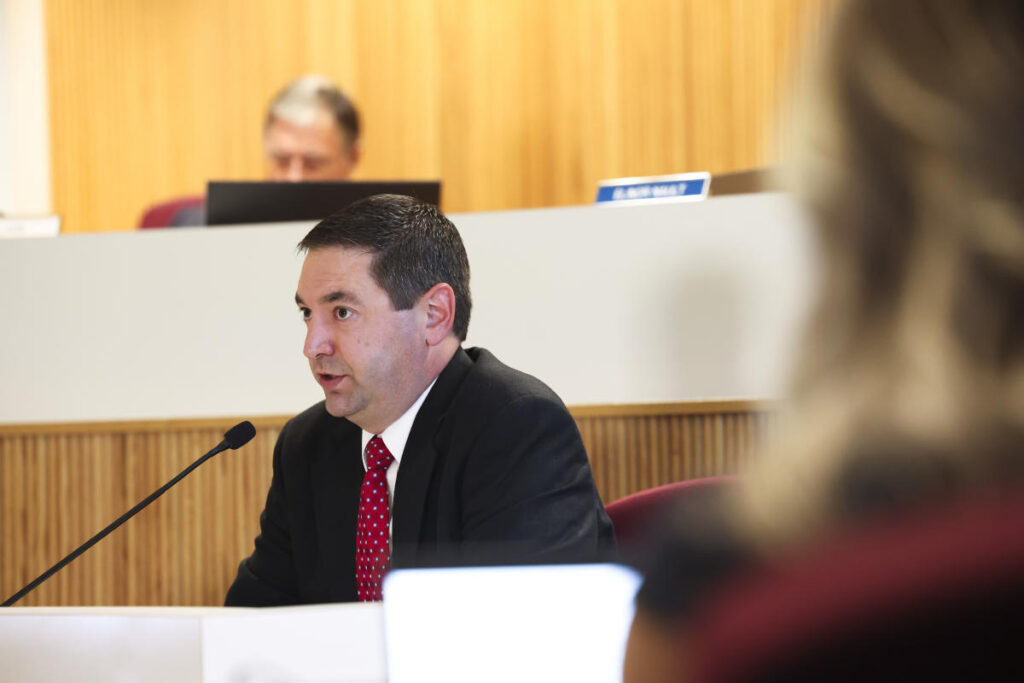In a significant development for Montana’s legal and political landscape, a state judicial panel has recommended a 90-day suspension for Republican Attorney General Austin Knudsen due to his consistent defiance of court orders and his public attacks on the integrity of the state’s justices. The controversy stems from a law that allows the state’s Republican governor to directly appoint judges, a measure aligned with a broader national strategy by the GOP to shape a more conservative judiciary. While both parties involved have 30 days to respond to the commission’s recommendation, the Montana Supreme Court will ultimately decide Knudsen’s fate, further complicated by the recusal motions filed by three justices who may step aside in favor of district court judges.
The implications of a possible suspension could deeply impact Knudsen’s role as attorney general, as the Montana state Constitution mandates that the attorney general must be an attorney in “good standing” and actively practice law in the state for a minimum of five years prior to election. As the panel’s findings suggested serious infractions of professional conduct rules, Department of Justice spokesperson Emilee Cantrell has openly expressed disagreement with the suspension’s recommendation, preferring a prior investigation that could have dealt with these issues privately and avoided politically sensitive confrontations. This highlights an internal conflict within the state’s legal and political systems, as public sentiment and partisan struggles shape ongoing legal processes.
The judicial panel’s findings strongly criticized Knudsen’s actions as “repeatedly, consistently, and undeniably” in violation of professional conduct rules. Despite his acknowledgment that certain declarations and strategies employed in court could have been approached differently, he steadfastly refused to accept that his conduct or language breached any professional standards. This unwillingness to take responsibility underscores a deeper pattern of obstinacy regarding the authority of the state’s judicial system, contributing to a growing tension between the executive and judicial branches of government.
The legal disputes at the heart of this issue trace back to 2021, during the legislative efforts to abolish the Judicial Nomination Commission, which was responsible for vetting judicial candidates. Conflicts arose after a Supreme Court administrator allegedly used state resources to poll judges regarding legislation impacting the judicial appointment process. Following the discovery of deleted emails that could shed light on these interactions, the Legislature issued a subpoena to the Department of Administration, which responded promptly. However, when the Supreme Court later quashed the subpoena, Knudsen’s office openly defied the directive, an act the panel categorized as “beyond the pale,” amplifying concerns about his office’s respect for the rule of law and judicial authority.
Beyond the immediate legal ramifications, Knudsen’s tenure has been characterized by a series of controversies that have raised questions about his leadership and ethical boundaries. For instance, he faced accusations of pressuring a local hospital to provide an unapproved treatment for a COVID-19 patient and supported individuals making threats against pandemic mandates. His political management strategies have also been criticized, including attempts to block constitutional initiatives from appearing on ballots and maneuvering within the primary elections to secure fundraising advantages. These incidents collectively paint a picture of an attorney general navigating an increasingly fraught political climate, leading to heightened scrutiny regarding his actions and accountability.
As the political tensions continue to unfold, the ramifications of Knudsen’s potential suspension will extend beyond legal consequences; they may also redefine the relationship between Montana’s executive and judicial branches. The ruling will serve as a crucial test of authority and accountability within the state’s political landscape, shaping future interactions between elected officials, the courts, and the public at large. The case encapsulates broader national themes surrounding the politicization of the judiciary and the challenges of maintaining an impartial legal system amidst partisan pressures, setting a precedent that may resonate well beyond the borders of Montana.

